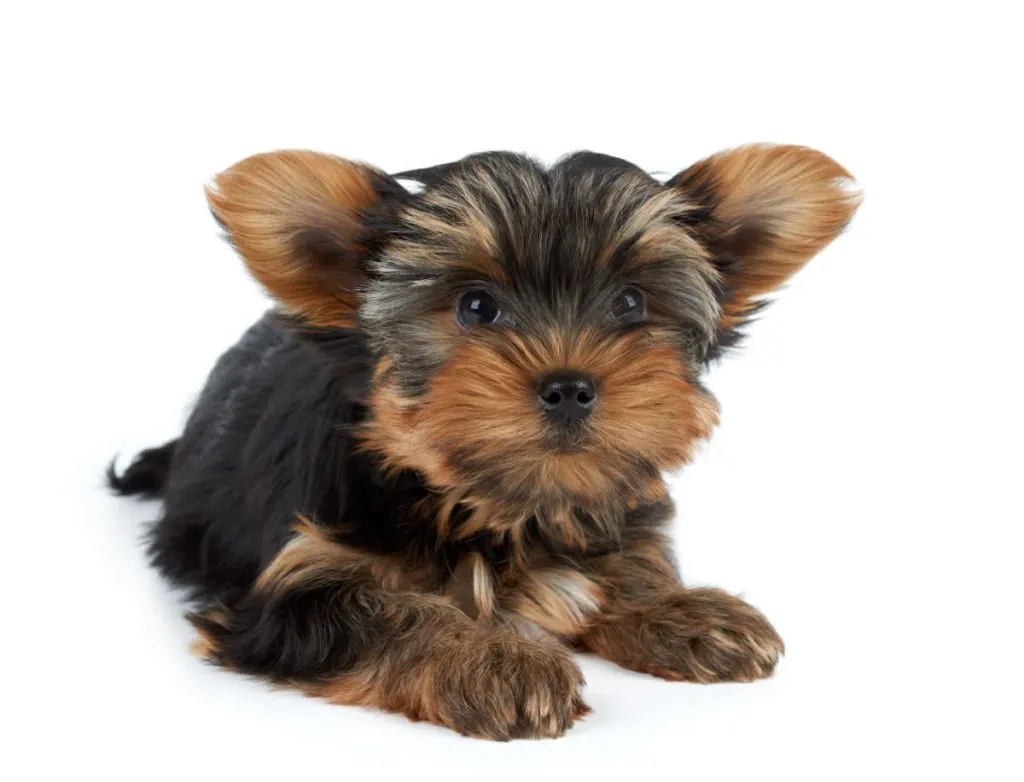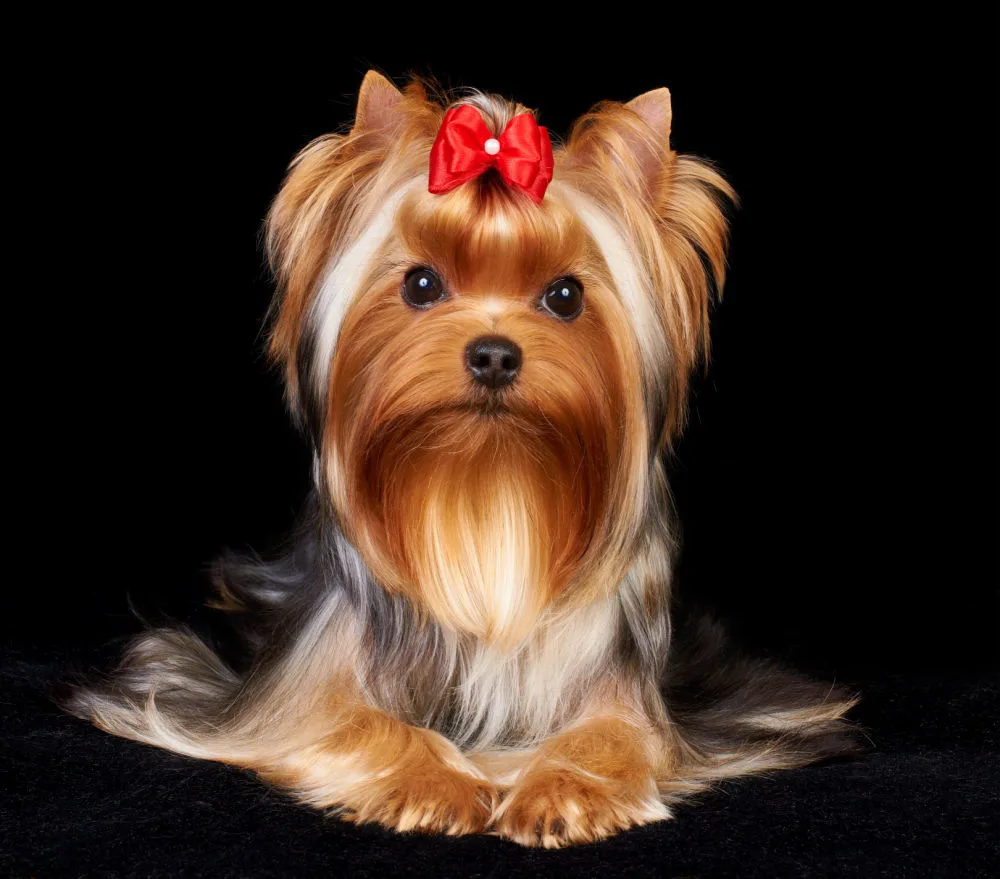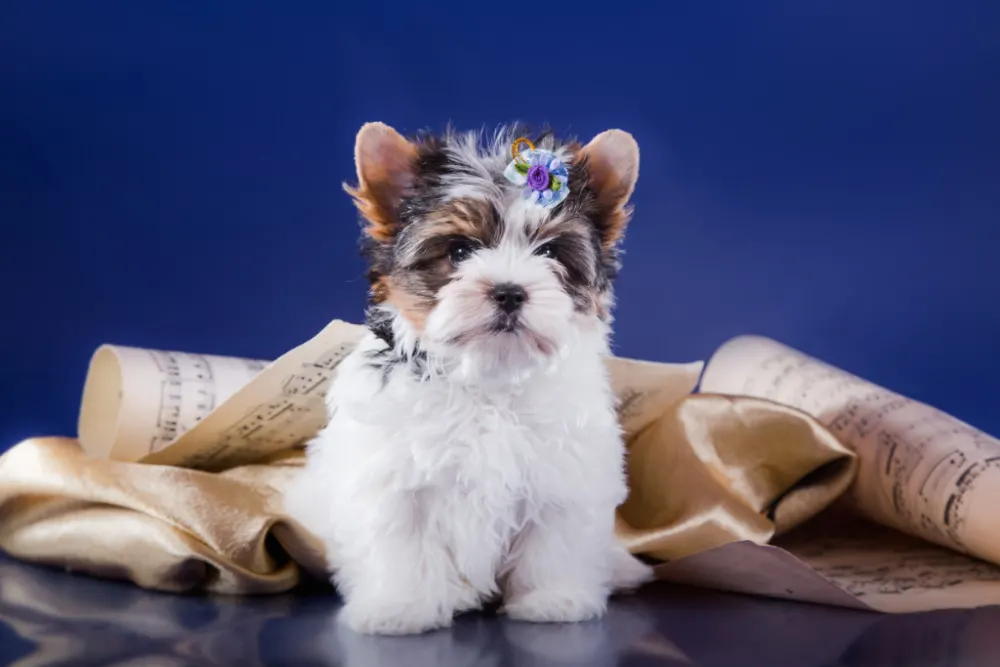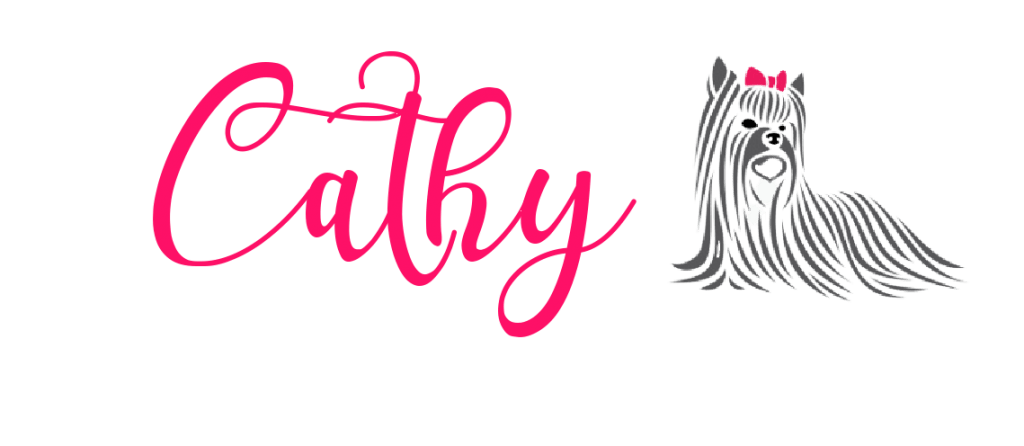When beginning your search for a yorkie to add to your family, you might be overwhelmed at the mere amount of yorkies available.
How will you ever decide? By narrowing down the available dogs based upon the characteristics you are looking for, you can tell breeders or rescues what kind of yorkie you want.
This article will help you to do just that! Use this as your guide to finding your future fur baby.
Initial Decisions
The first step will be narrowing down your search by deciding what kind of yorkie you want:
Age: Do I want a puppy or an adult?

Potential pet parents may choose to adopt a puppy or an adult dog, or purchase a puppy from a breeder. Sometimes breeders retire adults who have been used for breeding and sell them as well.
There are advantages to both.
An adult is usually calmer and probably has had some training. And you don’t have the worry of a “baby” in your house getting into everything.
On the other hand, puppies are so much fun and you will probably have them around longer since they are younger when you get them.
Gender: Do I want a male or a female?
Both males and females have different strengths and weaknesses, but both are very loving, so it is truly a personal preference. Whether you want a male or female, it is important to have your dog neutered or spayed.
Show or Pet: Do I want a pet quality or show quality yorkie?
Show quality dogs conform to the American Kennel Club’s breed standard for the Yorkshire terrier. If you want to show your Yorkie, you would need a dog who conforms to the breed standard.
Show quality dogs are always more expensive than pet quality dogs because of the careful breeding required to produce dogs that conform to this standard.
If you want a Yorkie purely for companionship, a pet quality dog would be a good choice. Pet quality dogs often are less expensive than show quality dogs, and the only difference is that they do not conform exactly to the breed standard.
ALSO READ: Why are Yorkshire Terriers so Expensive
This means they may be a different color than the accepted colors under the breed standard, or they may be slightly larger or smaller than the breed standard size. They are both perfectly capable of being amazing companions.
Distance: How far am I willing to travel to pick up my yorkie?
Sometimes it is possible to locate a yorkie near your home, and other times there might a significant distance between you. You will have to decide if you are willing to travel to pick up your yorkie, or if you will make arrangements for your Yorkie to travel to you safely.
Yorkshire Terrier Coloring
Once you have decided on the age, gender, show vs. pet, and vicinity from your home, you also need to consider what color yorkie you would like. Yorkies are available in the following colorations:
Blue and Gold

The American Kennel Club’s Yorkie breed standard describes only one classically stylish coloration, the blue and gold Yorkie that is the most frequently seen color of Yorkie:
Puppies are born black and tan, with darker bodies. Their color changes to the classic Yorkie coat as they mature.
At maturity, the tan coloration has expanded across the puppy’s face, head and legs. The tan color should be present on the following areas: on the head and muzzle, but not extending down the neck, on the chest, and on legs from the elbow down on front legs and the stifle down on back legs.
The tan coat on the face and head should have an ombre of tan coloring; their roots should be the darkest, with the tan shade lightening as it reaches the tips of the hair. The coloration is described as a “rich golden tan”, and this coloring is the most deep on the sides of the head. There should not be any black hair intermingled, which is sometimes described as the appearance of “soot”.
When mature, a yorkie’s dark steel blue coat begins at the base of the neck and extends to the tail. The hair on the tail is usually the darkest steel blue on the body. The blue coloration should not be a silver hue of blue, but a dark steel blue. There should be no bronze, fawn, or black hairs mixed in with the steel blue coat.
Pet quality yorkies may have more tan or blue in different areas than described above since they were not bred to conform exactly to the breed standard.
Different breeders and rescues will refer to this coloration in different terms, but ultimately are describing the same coat. Most commonly the coloration is referred to as black and tan , blue and tan, black and gold or blue and gold .
Biewer Terrier

Biewer terriers are described as “piebald”; they have a mixture of white, tan, and black coats. White is often the dominating color of the three.
We have a post on Biewer Terriers for more information.
Other Colors
The following colorations are not accepted by the AKC, making these types of yorkies always pet quality dogs:
Parti Yorkies

Parti yorkies are black, white, and tan in color.
Black Yorkies

Black yorkies are either solid black, or mostly black with some tan or white coloration. I myself have a mostly black Yorkie with just a little white at the tips of his paws and on his chest.
Golden Yorkies

Golden yorkies are completely golden blonde; they have no black or blue steel coloring.
Red Yorkies

Red yorkies are a dark strawberry blonde, either solid red strawberry blonde or with some black coloring.
White Yorkies

White yorkies are solid white. Yorkies that are white with some tan and black coloration are considered “parti yorkies”.
Silverback Yorkies

Silver back Yorkies often have a similar coloration to the breed standard but with a silver hue to the traditional blue steel coat. Even though they look very similar, a silverback Yorkie would ultimately be disqualified from showing, as the breed standard specifies the coat should be steel blue not silver blue.
Does color matter?
If you want to show your yorkie, yes. Since the AKC Breed standard only describes the blue and gold coloration, the other colorations yorkies are bred in are considered pet quality dogs, since these colorations would disqualify a yorkie from a dog show.
Yorkie Mix
There are lots of adorable Yorkie mixes out there. One of mine, Lucas is a Chorkie (Chihuahua-Yorkie mix) and he’s a wonderful dog.
One of the good things about mixes is that with a mix of 2 breeds, they are less apt to have the medical issues that each breed is prone to. They also tend be extremely cute.
Here’s a good post for more about Yorkie mix dogs.
Tips For Searching For A Yorkie
Keep these tips in mind as you search for your yorkie:
Commitment
Adding a yorkie to your life is a major commitment, as these little dogs live an approximate life span of 11 to 15 years but can live as long as 20 years. If this life span is too much of a commitment for you, consider adopting a senior yorkie, giving him or her the best golden years possible. If that proposition is intimidating to you, consider another type of furry friend, such as a guinea pig, rabbit, rat, hamster, or gerbil. Their life spans are shorter and they may be tamed for you to pet and snuggle.
There is no such thing as a “tea cup” yorkie
Exercise extreme caution when coming across yorkies advertised as “tea cup”.
Yorkies are in the toy dog group of the American Kennel Club; the breed standard is for them to reach about 7-8 inches in height and weigh about 7 pounds or less. That’s already pretty small!
Further, the American Kennel Club does not have a “tea cup” category officially recognized; their breed standard does not mention this language when describing Yorkies.
This means that these breeders may be using unethical breeding methods to produce a dog they think will sell well or that they believe they can charge more money for, but that will ultimately be unhealthy and suffer as a result of their genetics.
Always support responsible breeders and rescues
Sadly there are many unethical individuals trying to profit off selling yorkies without regard for the yorkie’s well being. Always pay careful attention to the people you are dealing with, the facility the dogs are kept in, and the care the dogs receive. Often referred to as puppy mills, these organizations breed without regard to health and welfare, only profit. Learn more about puppy mills on the ASPCA’s website here.
If you do not think that the dogs are being well cared for you might be tempted to bring a dog home that day to rescue it. While your heart is in the right place, supporting an unscrupulous individual will only lead to them continuing their business, resulting in more dogs suffering.
You could certainly take the dog home that day, but do not stop there. The best course of action is to report them to local authorities. The ASPCA offers for guidance on reporting the cruelty you may encounter.
Conclusion
Whether pet quality or show quality, whether perfectly conforming to the breed standard or not, all yorkies are deserving of loving homes. Do not hesitate to add a yorkie to your family who does not conform to the breed standard; they are just as healthy and loving as a perfectly conformed show quality yorkie.
Do you have a yorkie who you love? Share your experience finding your yorkie and why you love him or her in the comments below!



Lee
Saturday 18th of March 2023
We are on our third loving Yorkie. Our first one had a full tail yet the second one, a half sister (same father different mother) had a stubby tail. It was never bobbed she was born that way. Our newest little addition also has a "stubby". We adore our fur babies, they bring so much love and happiness to us. What is a Yorkie? Five pounds of love wrapped in fur. :)
MomOfZiggy
Saturday 18th of March 2023
Yes they are all love wrapped in fur. One of my Yorkies has half a tail, but is not docked. Personally, I don't like docked tails on dogs. I love seeing a full waggy tail.
Dewayne Smith
Monday 20th of February 2023
Are all yorkie needs there tails clipped
MomOfZiggy
Monday 20th of February 2023
Unless you plan on showing your yorkie, they don't need their tails docked.